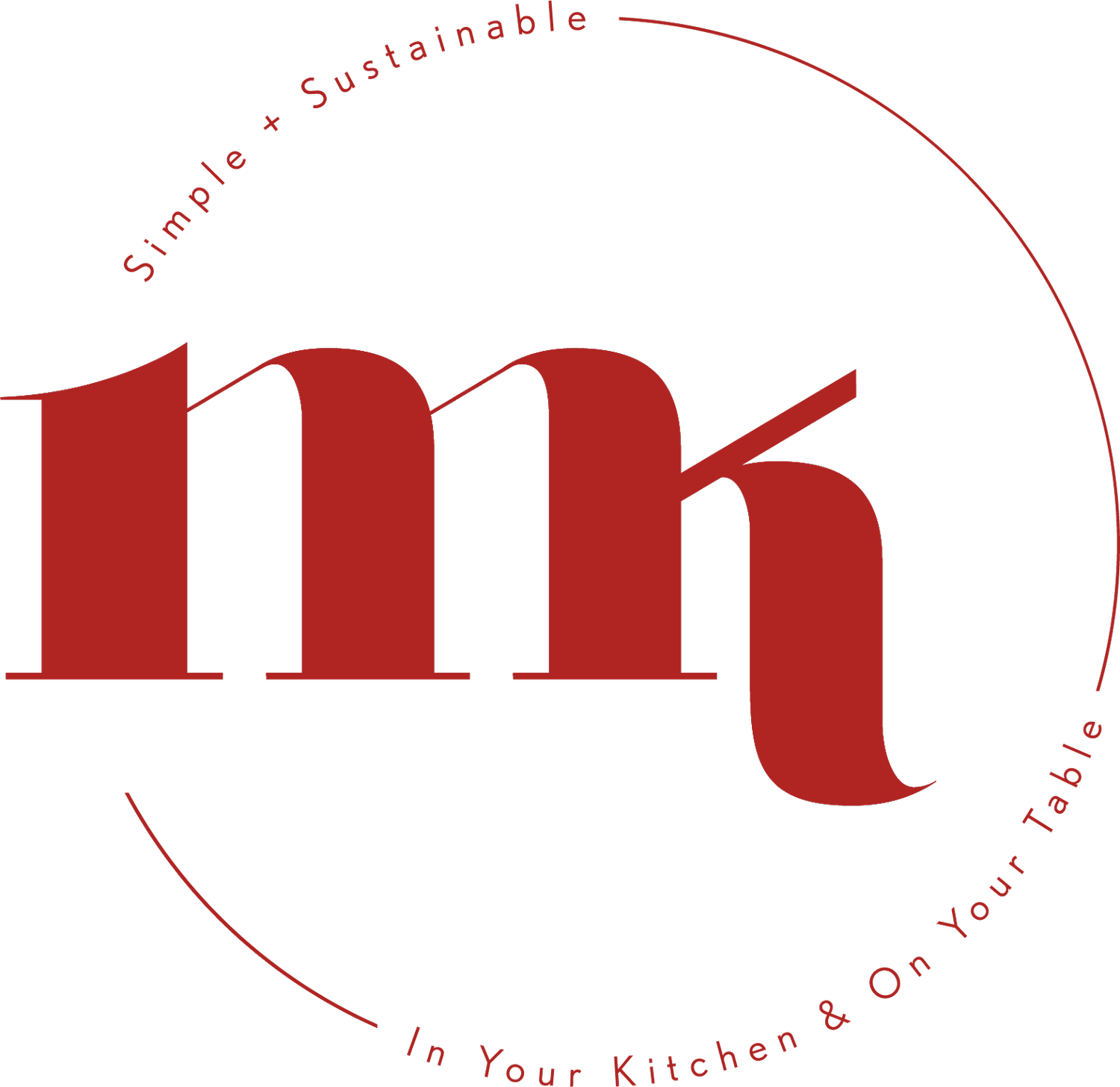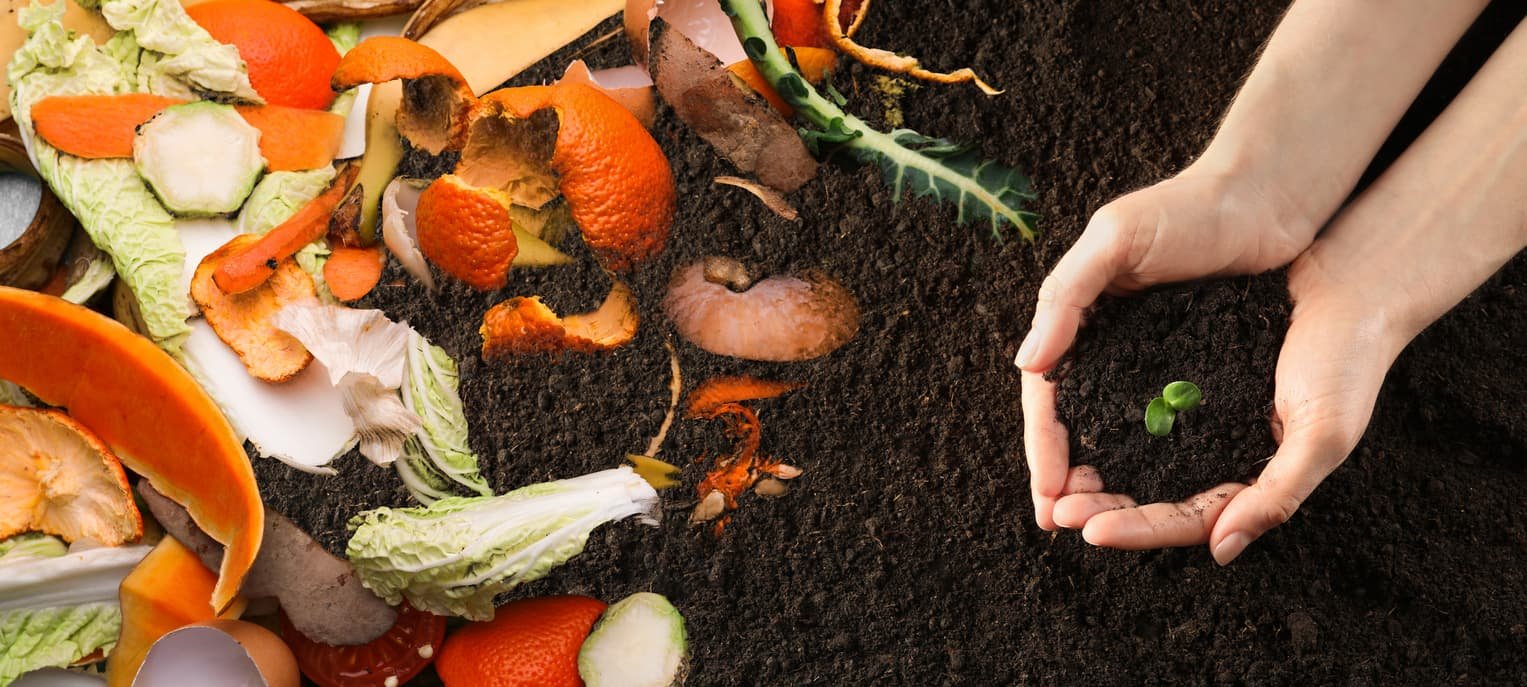Composting for Beginners
Hi friends, Megan K. here, sharing my compost confessionals & reminding you, “Don’t throw it all away!”
Are you contemplating composting? Are you wondering where and how to begin? Well, you’ve come to the right place. I’m here to share my insights and support you on your composting journey.
We all strive to do our part, but when we hear phrases like “lower your waste” or “minimize your carbon footprint & compost,” it can feel a bit overwhelming. But fear not, one of the greatest gifts we can give Mother Nature is our food waste.
Composting can divert as much as 30% of household waste from the garbage bin. That’s important because when organic matter hits the landfill, it lacks the air it needs to decompose quickly. Instead, it creates harmful methane gas as it breaks down, increasing the rate of global warming and climate change.
I’m sharing my insights with you to help your pocket, your palate & the planet. For me, composting is the most important step in becoming a more conscious food consumer.
So for those of you at home, this is your Composting Guide for Beginners. Let’s get acquainted with the basics, so you too can bring this simple & sustainable solution into your home.
Composting Guide for Beginners
What is compost
What is composting
What can we compost
How to compost at home
How to find the best compost service in your area
Top 3 reasons to compost now
What Is Compost?
Compost is organic material that can be added to soil to help plants grow. Food scraps & yard waste together currently make up more than 30% of what we throw away that could be composted instead. Think “re-homed food.” Compost is a particularly rich type of soil & organic matter that is extra-concentrated & rich with microbes & nourishment for growing things.
What Is Composting?
Short Answer: Composting takes all organic matter… food, scraps, anything that can decompose and be broken down into soil again.
Technical Terms: Composting is a microbial process that converts plant materials such as food scraps & yard waste into a more usable organic soil amendment or mulch.
Gardeners have used compost for centuries to increase the organic matter of soil, improve its physical properties and supply some of its essential nutrients for plant growth.
What Can You Compost—The most surprising organic materials that you can compost?
Surprising organic materials we should all start composting now.
Used paper towels: Paper towels & any compostable paper product.
Cardboard: If it’s a box, paper towel or toilet paper roll, any non-coated cardboard. Think “pizza box,” compost it!
Used paper coffee filters: Dump it and the coffee grounds into your compost bin.
Wine corks: True corks, not the plastic ones.
Houseplant trimmings: They are organic matter, so throw them in!
Crumbs from your kitchen: All that stuff you sweep off your counters and floors.
What Can You Compost—What food items can you compost at home?
Tried and true food items we should all start composting now.
Vegetable scraps & peels
Fruit scraps, peels & pits
Rotting or moldy produce
Tea leaves & coffee grounds
Eggshells
Meat, poultry & fish scraps
Bread
Stale crackers & cereal
Cooked, plain pasta & rice
Cooked beans
Tofu, seaweed, kelp, & nori
Nutshells
*No walnut shells
How To Compost at Home
The best way for the vast majority of people to compost at home is to have someone else do it for you. Meaning, reach out to your local composting service and find out who provides compost pick up or where to drop-off in your area.
Here are the best ways to sort your composting, reach out to the following:
Municipal Government
Local Trash Removal Service
Local Farmers Market
A Friendly Farmer
How to find the best composting service in your area?
Here's How to Find the Best Compost Service in Your Area:
Your Municipal Government— A Google search will provide you with your city or town’s government contact. Explain that you’re an in-home composter, and ask if the city offers compost pick-up. Not all cities or towns provide this service. If your area offers compost pick-up, they will provide you with all the needed information, protocols and requirements for safe compost removal.
Your Local Trash Removal Service— Not all municipal governments manage trash removal. Most common in these cases, an independent company will pick up your trash and recycling.
While composting is becoming more popular and enforced, it’s not popular enough to be offered as part of a basic service. Contact your removal service and ask if you can add a compost pick-up option. Some companies now offer compost pick-up with a receptacle for a small fee. For those living in an apartment or condo, your building’s landlord or super will have the contact details for your provider.
Your Local Farmers Market— If you have a local farmers market, inquire about compost drop-off. The bigger the market, the more likely you will find someone who offers compost drop-off, and more often than not, you can drop off scraps without paying a fee.
A Friendly Farmer— You can always reach out to a local farmer, ask the folks who run a CSA (community supported agriculture), or a neighbor who loves to garden and grows fruits and vegetables. When donating compost to a farm or individual gardener, you want to create as little work as possible for them. Ask how they’d like the compost to be delivered, with what frequency, and if they have any specific do’s and don’ts.
Top 3 Reasons To Compost Now
Composting makes you a more efficient cook.
Makes your trash smell better, your landfill lighter and your carbon footprint smaller.
It makes you part of the food cycle. When you give food back to the Earth through composting, you become a contributor to the cycle, not just a consumer.
Subscribe to The Shizzle
A monthly newsletter featuring everything from seasonal produce to conscious entertaining—including guides, recipes, & meal prep tips! You’ll be the first to know when we announce upcoming experiences, special events, and exclusive offers.



